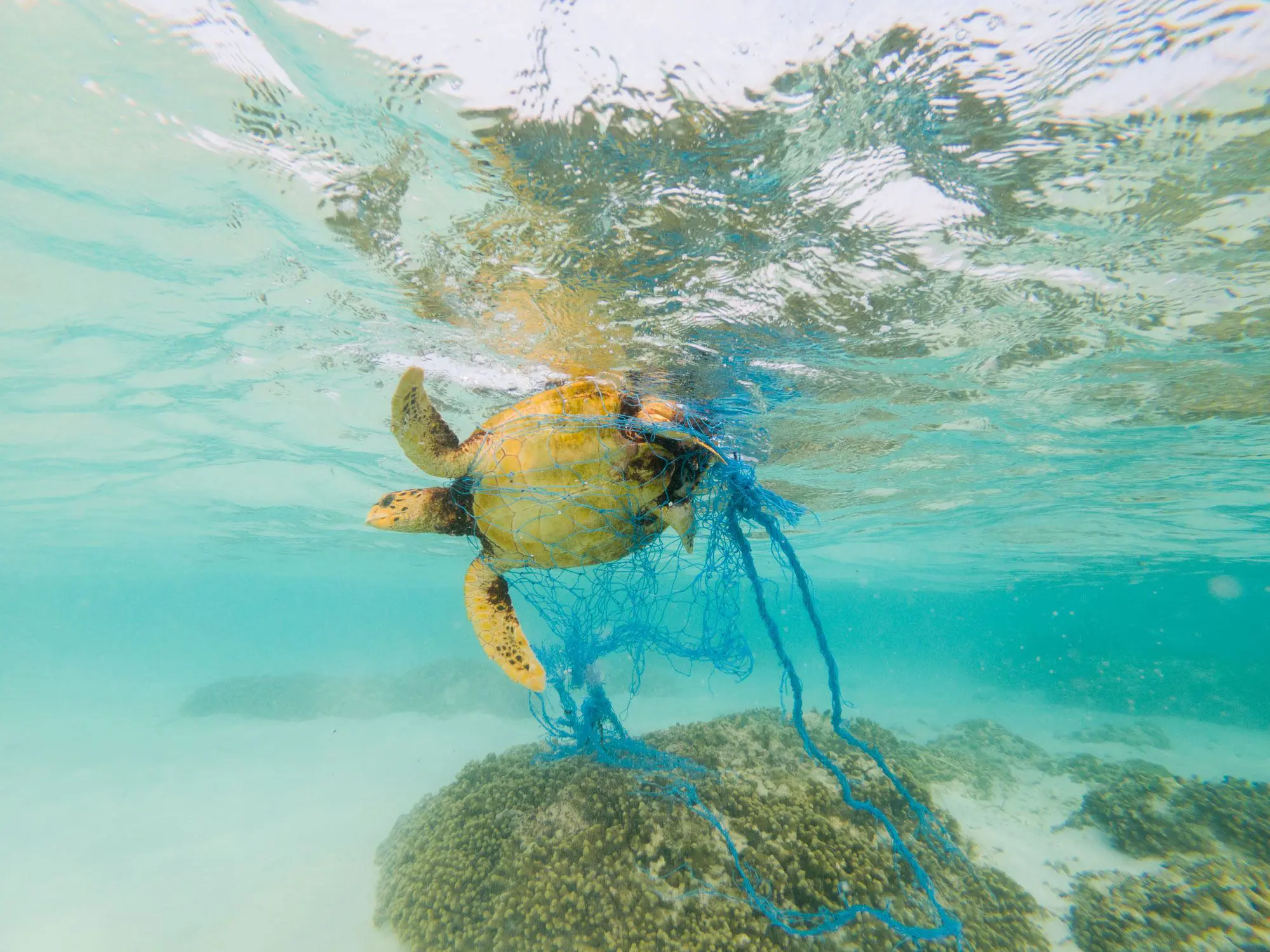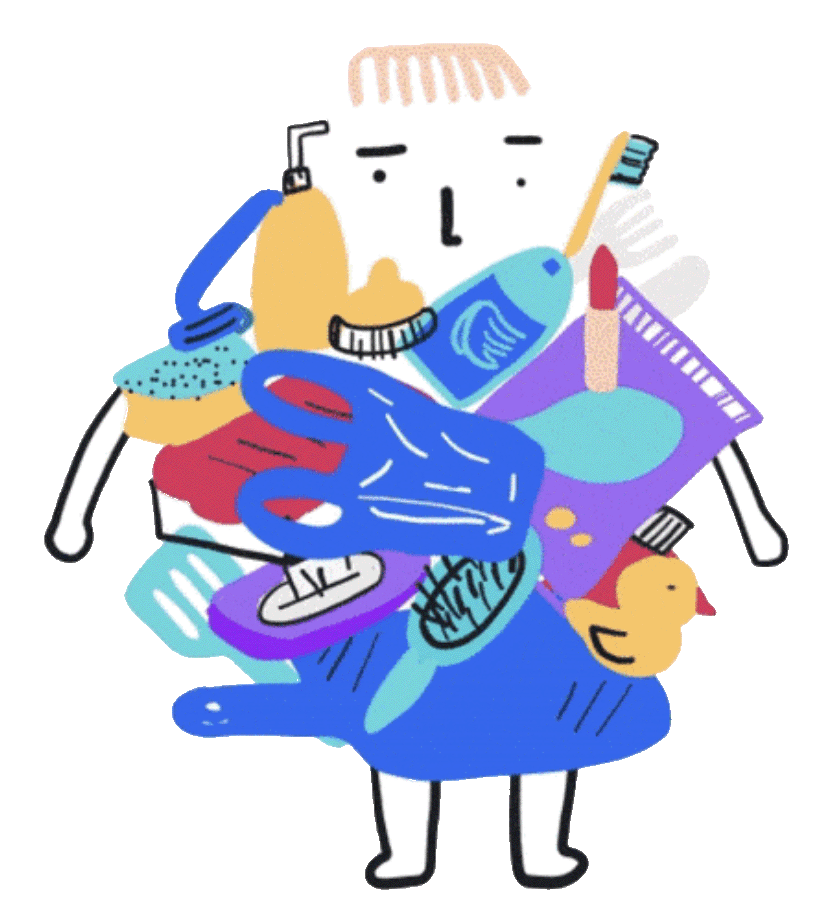That number is now more than 2000 species and is constantly increasing. This includes animals that become stuck in plastic. When this happens, animals can no longer move freely; they choke, starve, or lose limbs due to amputation. This figure does not reflect the actual number of species of animals affected by plastic, but only the species that have been investigated. If we ask which animal species are demonstrably not affected, the answer would be: shockingly few.
Animals stuck in plastic lead to amputation
Getting stuck in plastic can have horrible consequences for the animals such as reduced mobility, starvation, drowning or suffocation. It can lead to infections, growths or amputation of limbs. Animals stuck in plastic become less capable of finding food and become also easy victims for predators. For whales, entanglement in plastic is a greater threat than whaling. The sharp threads of nets can cut into their flesh, causing whales to lose fins or tails. Other whales must swim with the fishing nets in which they are entangled. Marine mammals such as sea lions, dolphins, and seals are regularly the victims of their own curiosity, and turtles are known for getting easily stuck in plastic too. They swim right up to plastic objects and play with them. These species have not yet learned that these objects are not fun but dangerous.
Entangled by balloons
Birds can become entangled in the plastic derived from balloons which can wrap around their legs or head. It is indeed a festive sight to release balloons, especially large masses of balloons. But it is horrible to see birds wearing balloon ribbons around their neck. After their flight, balloons do come down somewhere. If that is at the sea, there is a chance that they wash up on land, and animals get stuck in the plastic ribbons. A lot of balloon remnants are always found on beaches. The Plastic Soup Foundation and other environmental organizations have been running the campaign Die ballon gaat niet op (The Balloons don’t go up) for years, aiming to discourage and prohibit the release of balloons. In the Netherlands, more and more municipalities prohibit the release of balloons. Also, the organization which oversees the annual King’s Day celebrations, the Koninklijke Bond van Oranjeverenigingen, now also discourages the practice.


.png)

